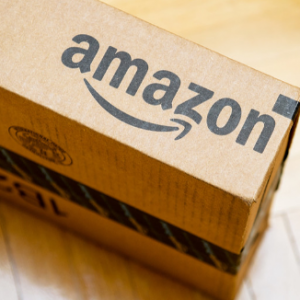
To a brand like Nike, which tends to prize fashion over function, Amazon’s too-busy product interfaces must feel like the equivalent of a kid’s messy bedroom it’s forced to play in.
But now the international sports and fashion brand is working to clean up its presence on the site.
CNN reported last week that Nike CEO Mark Parker confirmed that the company is currently testing out a partnership with Amazon that will allow it to “elevate the way the brand is presented,” Parker told investors.
What’s expected to spring forth from that partnership is a slick, virtual shop-in-shop, which will live on Amazon.com but will have its own landing page and feature a limited assortment of Nike products.
While the idea of hosting your own shop on one of the world’s biggest retail sites is undoubtedly attractive (on many levels) for image-conscious fashion and luxury brands, the setup is considered by some to be a direct route to brand equity degradation.
Former Amazon employee Elaine Kwon told Racked.com that wholesaling in collaboration with Amazon will result in Nike forfeiting “any and all pricing control.” And that’s especially problematic “because of the way Amazon matches prices—not just across the site, but from across the web.”
In simpler terms, Amazon tries to offer the lowest prices in any given market (it claims it doesn’t price-match, but that it does offer promotional periods where prices are temporarily lower). So, the argument goes, why would Amazon concern itself with protecting Nike’s above-average prices?
It’s a viewpoint that assumes that any Amazon brand deal would automatically give Amazon complete pricing control, which could very well not be the case. And how can (and will) brands resist riding the Amazon train ultimately? The company’s revenue is reportedly going to grow 50 percent by 2021.
Amazon’s ubiquity in the marketplace is real, and few brands have the capital—not to mention the vision—to resist a spot on its team.
Kwon, for one, says the luxury market should be especially wary.
She worked on the Amazon Fashion team from 2014 through 2016, according to Racked, where she saw luxury brands including Gucci, Versace, and Salvatore Ferragamo struggle with the reality of seeing their prices marked down significantly—because “the same items were being flooded by a gray market.”
There’s no doubt about it—selling on Amazon is a volume game. And that may mean it’s not a great place for real luxury, or any consumer brand looking to maintain an air of exclusivity.
But it’s a risk you could hardly blame them for taking.
(Top: Image courtesy of Amazon)
- Subscribe to the JCK News Daily
- Subscribe to the JCK Special Report
- Follow JCK on Instagram: @jckmagazine
- Follow JCK on X: @jckmagazine
- Follow JCK on Facebook: @jckmagazine